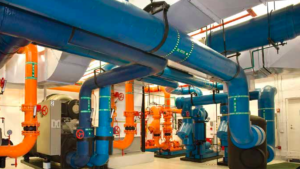
What does 2018 have in store for TIAC members? According to Steve Clayman, TIAC’s director of energy initiatives, it’s a mixed bag.
On the one hand, technological trends such as energy efficiency are undoubtedly good news for Canada’s thermal insulation industry. On the other, TIAC members who don’t work hard to capitalize on these trends – including promoting the relevance of their products in addressing these trends – risk being left behind.
To get more details, TIAC Times sat down with Clayman.
Here’s what he told us:
TIAC Times: What do you project the state of the industry will be for TIAC and your members in 2018?
Clayman: The amount of business generated in the mechanical insulation industry is dependent on heavy and light industrial activity (oil sands to manufacturing plants) and activity in the commercial/institutional markets (office buildings to schools and hospitals). Should the Canadian economy keep improving, this will bode well for our industry.
TIAC Times: What factors will play the biggest role in your association and your members in the coming year?
Clayman: As energy codes at the national and provincial/territorial levels move forward to improving energy efficiency, water use reduction, greenhouse gas emission reductions, and helping reduce the incidence of Legionella disease, our industry will benefit. The benefits to the industry arise as a result of increased insulation thicknesses. The benefits to each of us on a personal level are that we all have a healthier environment to live in. Consider also, as an example, the energy savings realized by a hospital can be returned to improving the healthcare system.
TIAC Times: What is your industry’s single biggest challenge moving forward? How should the industry respond?
Clayman: The challenge is internal, in that TIAC members (all three sectors: manufacturers, distributors, and contractors) must be pro-active in promoting the benefits of increased insulation thicknesses. Energy codes state minimum requirements within clearly defined parameters. That’s the easy part. Once one steps out of these parameters, then what? Projects begin in the conceptual stage and we have to be engaged from the get-go—owners, architects, and engineers.
TIAC Times: What is the single most important thing your members can do to stay competitive in the coming years?
Clayman: The mechanical insulation industry is very competitive within each of the sectors. The key factor, in my view, is for members to pursue learning. Learn how to leverage the new energy code requirements. Learn how to educate customers as to what deficiencies to look for. Learn what it means to represent the trade in the highest professional manner possible.



